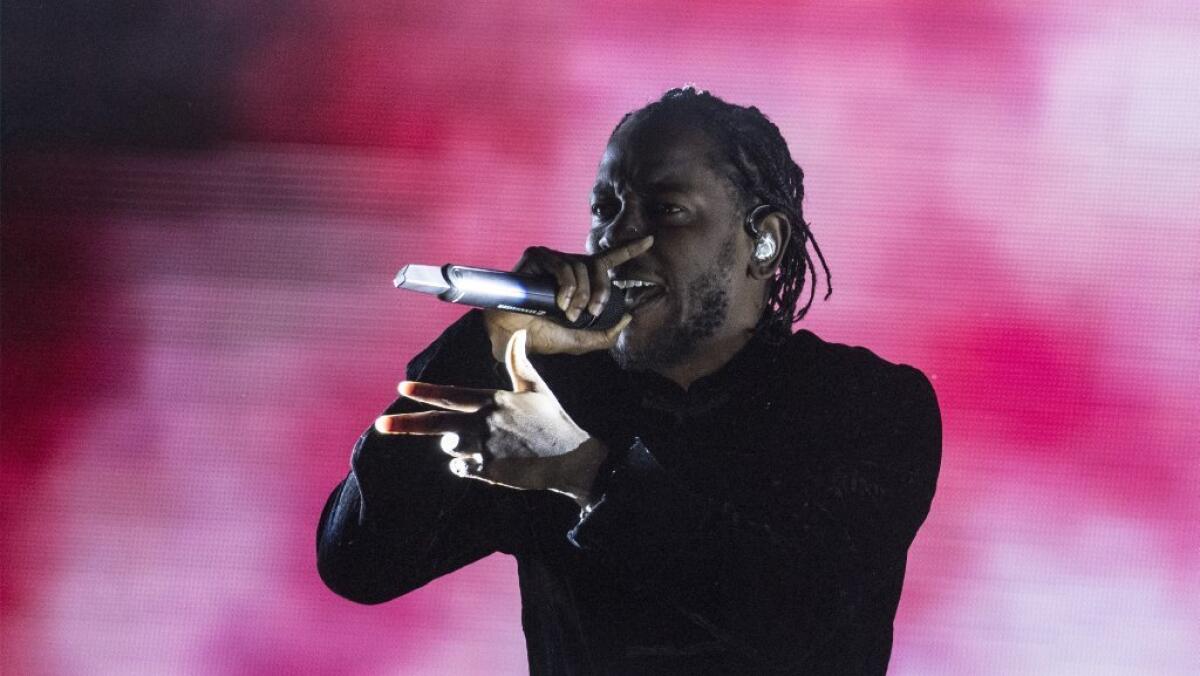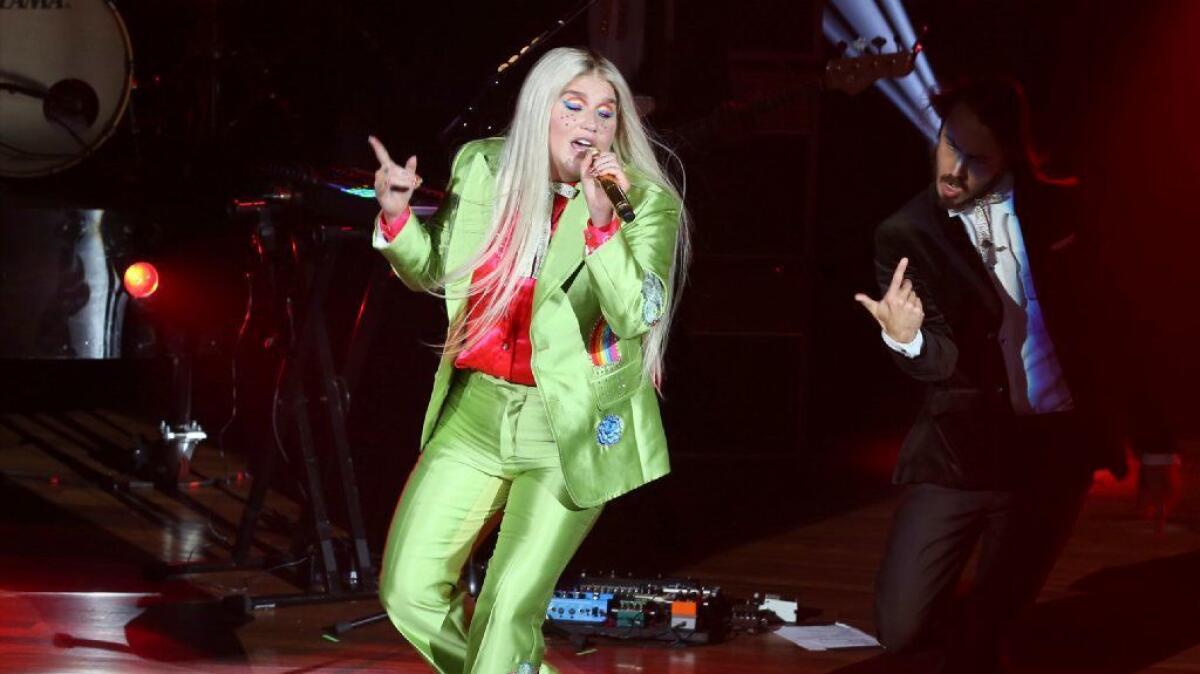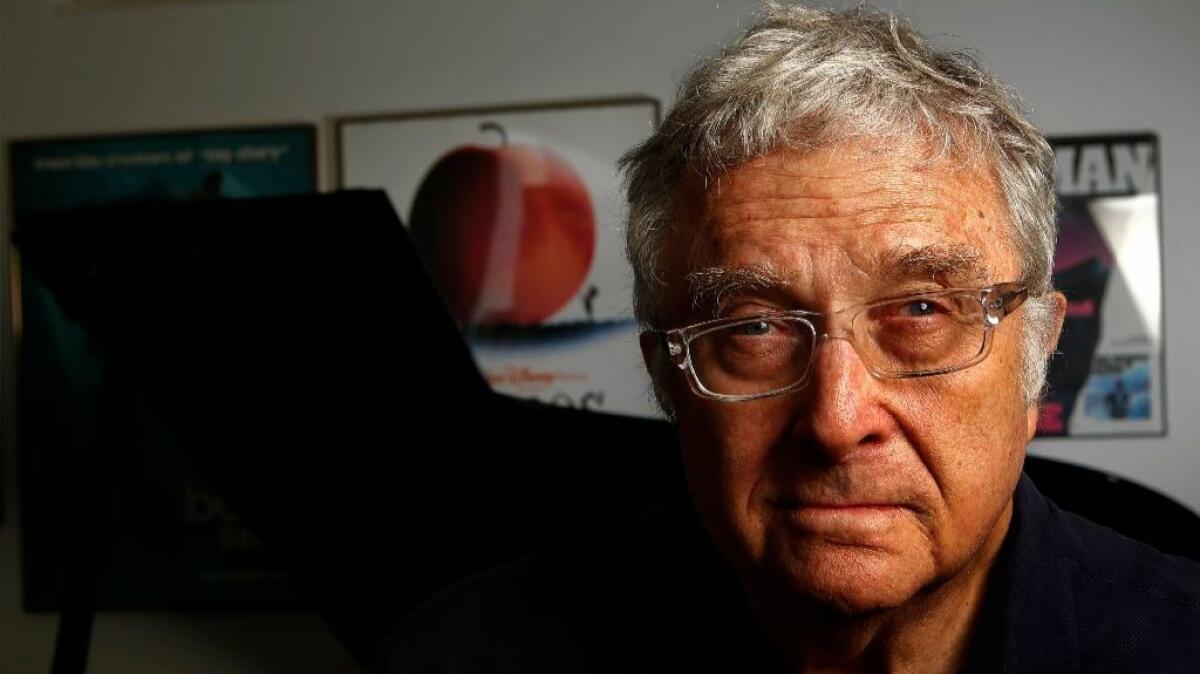In 2017, pop music either sought shelter from the storm or ran straight into it
Even now, eight months after I first heard it, the 10-second stretch of music gets me every time.
It comes at the end of the second verse of “Love,” a song from Kendrick Lamar’s album “Damn,” and the thing that’s so gripping is the way the Compton rapper suddenly shrinks a vast, roiling world down to the psychic space between two people.
A small guy with big ideas, he’s been zoomed way out on “Damn,” pondering faith and race and the meaning of success — what America wants from a celebrity and what it doesn’t want from a black man.

But here, in “Love,” he zeroes in on himself, on the phone with his girlfriend as he hurtles down the freeway; he reminds her about an unspecified but clearly memorable occasion in Gardena (“I want your body, your music”), then assures her he’s almost there next to her again (“I’m like an exit away”).
In 2017, the intimacy of that moment, and the tenderness, felt like a precious resource, not least because of its placement on an album that otherwise took up the unfriendly turmoil that defined the year.
To engage with the chaos or to retreat inward — these were the options facing all pop musicians, whose work more than ever reflected the times thanks to the acceleration of distribution brought on by digital streaming. (Consider that Jay-Z’s “4:44,” which came out in June, has a lyric about a much-discussed selfie that Al Sharpton posted on Instagram that same month.)

Kesha, anticipating the #MeToo movement, sang unflinchingly about the abuse she suffered at the hands of a tormentor on her album “Rainbow.” Randy Newman skewered Russian President Vladimir Putin and dramatized the debate over climate change on “Dark Matter,” his first set of new songs in a decade.
On “Reputation” and “Masseduction,” respectively, Taylor Swift and St. Vincent pushed media studies into a darkly satirical zone befitting an era of so-called fake news. And then there was Father John Misty, pushing the social-media study of Taylor Swift into a queasy parody all his own with “Pure Comedy,” a gorgeous orchestral-folk album about how unfunny the future is likely to be.
FULL COVERAGE: Year-end entertainment 2018 »

Some artists offered thoughtful introspection: songs about family and childhood on Ethan Gruska’s “Slowmotionary” or about the tidy patterns of life in a small California town on Jade Jackson’s “Gilded.” Murmuring breathily about seduction and betrayal, the Los Angeles-based soul singer Niia made a dimly lighted bedroom seem like a world unto itself on “I.”
In other years these records may have come off as self-indulgent, but not in 2017, when you had to welcome the illumination of a realm untouched by hurricanes and mass shootings and men in polo shirts spreading hatred by torchlight.
As Lamar showed on “Damn,” nobody was forced to choose between the personal and the political. “4:44” set Jay-Z’s thoughts about marriage and infidelity against a backdrop of black self-determination — a mirror-image response to last year’s “Lemonade,” by his wife, Beyoncé. Mavis Staples’ “If All I Was Was Black” extended a story of activism that’s also the story of her life.
And right after that tune about Putin, Newman unloads “Lost Without You,” in which an aging widower wonders how on Earth he’s supposed to go on.
The song provides no answer, meaning it’s more in keeping with current events than its old-timey arrangement suggests. But just to hear the guy confronting the question — well, that was reassurance of a kind.

Twitter: @mikaelwood
More to Read
The biggest entertainment stories
Get our big stories about Hollywood, film, television, music, arts, culture and more right in your inbox as soon as they publish.
You may occasionally receive promotional content from the Los Angeles Times.











